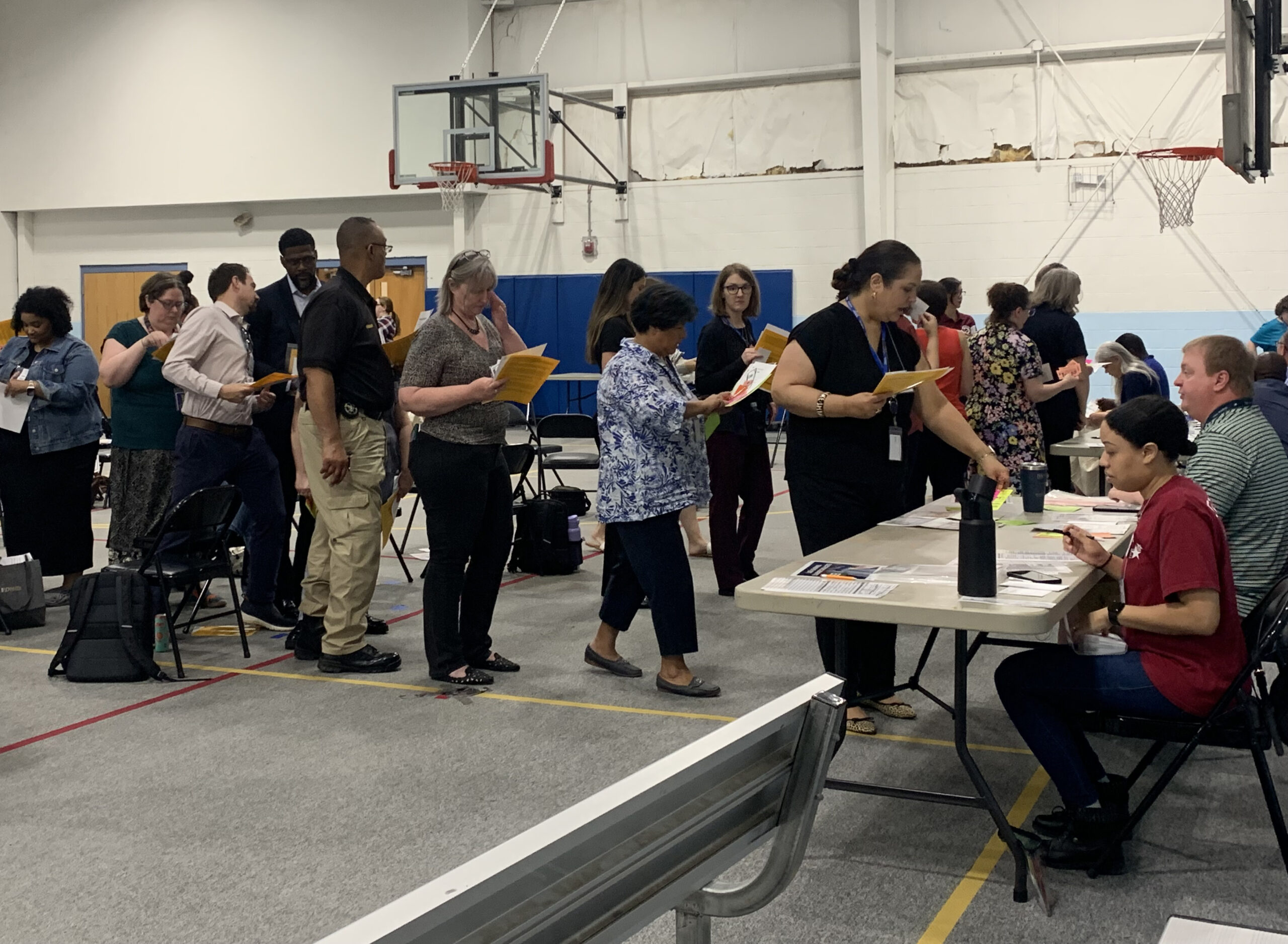Poverty and Services Simulation Provides Real Life Experience for Employees and Others
by Prince William County Communications
Prince William County employees from 19 county departments, as well as several of the county’s community partners, recently gathered to take part in a Poverty and Services Simulation Experience. The learning exercise immersed those who attended in the complex realities faced by individuals and families living in poverty. It highlighted the challenges and dynamics of accessing human services and other support systems within our community, thereby helping employees better understand those processes to better serve those living in poverty.
More than 150 Prince William County employees participated in the simulation, from executive management to frontline staff. Each person assumed the roles of people living in poverty and was provided with background information such as demographics, income level, employment status, family composition, health status and other relevant factors.
“The primary goal of the simulation was to deepen understanding of poverty, create empathy for those facing economic hardship, and promote awareness of the complexities of accessing social and community services,” said Sarah Henry, the Director of Community Outreach and Partnerships for the Prince William County Transformation Management Office. “The aim of the simulation was to promote dialogue and reflection and inspire a call to action to address inequality, structural barriers and policies on behalf of the less fortunate within the community.”
Through the simulation, participants took on the role of different family members who encounter various events and challenges commonly faced by people living in poverty, such as illness, job loss and unexpected expenses. It was the role of the family to navigate their circumstance for a full month, including meeting all of their financial obligations for rent, food, clothing, childcare, loans and more.
“The simulation was made possible with grant funding from Sentara and space provided by the Boys & Girls Club, and it raised awareness of the barriers and implications policies have on the lives of people in the community experiencing economic hardships,” said Henry. “It created empathy among participants and promoted a better understanding of issues facing those living in poverty.”
Based on the feedback received after the simulation, participants found the training beneficial and believe it will influence their approach to assisting clients with health, wellbeing and environmental stability.
Since the simulation, an additional 26 people have been trained to administer the Poverty and Services Simulation to more county employees.
“Ultimately, we want to provide the best customer care and experience to our clients,” said County Executive Chris Shorter. “Simulations like this can enhance employees’ awareness of available resources and services, enabling them to provide more comprehensive and informed assistance to county residents, while creating a more empathetic, responsive and effective approach to supporting individuals and families experiencing poverty within our community.”


